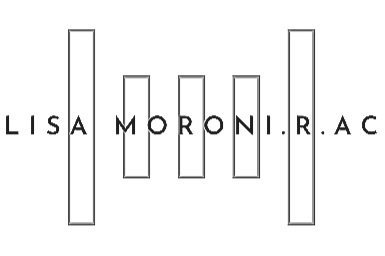Fertility & Acupuncture: The Science in the Needles
Traditional Chinese Medicine (TCM) is a beautiful ancient approach to optimal vitality and health preservation. One of the main modalities of this medicine is acupuncture. I am fascinated by acupuncture's ability to improve fertility outcomes and want to explore what the ancients knew and what modern science is now beginning to understand and explain.
1. Enhancing Ovarian and Uterine Health: Improved Blood Flow
One of acupuncture’s most studied effects is its ability to improve blood flow to the reproductive organs.
A Fertility and Sterility study found that acupuncture enhances uterine blood flow, supporting a thicker, healthier uterine lining — vital for implantation success (Stener-Victorin et al., 2016). Better oxygenation of the ovaries also promotes the development of strong, viable eggs.
2. Hormonal Balance: Restoring Menstrual Cycles and Ovulation
Hormonal imbalances often cause infertility, particularly conditions like PCOS. Acupuncture helps regulate the endocrine system, improving menstrual regularity and encouraging ovulation.
A randomized clinical trial in Human Reproduction showed acupuncture improved ovarian function in women with PCOS (Vamvakias et al., 2002), offering hope for those struggling with irregular cycles.
3. Boosting IVF and IUI Success Rates
Acupuncture is gaining recognition for its potential benefits in IVF, with studies showing improved pregnancy outcomes when acupuncture is administered around embryo transfer. A 2021 meta-analysis of 29 studies involving over 6,600 participants found acupuncture led to significantly higher rates of biochemical pregnancy, clinical pregnancy, ongoing pregnancy, and live birth (Zhou, Li, Ding, & Lu, 2022)
However, when compared to sham acupuncture, where needles are placed at non-therapeutic points, the differences were not significant. This suggests that some of acupuncture's benefits may be attributed to energetic intention or placebo. Nevertheless, all acupuncture treatments still shows benefits when compared to no acupuncture. While it shows promise as an adjunct to IVF, more research is needed to fully understand its efficacy.
4. Stress Reduction: A Crucial Fertility Factor
Stress can wreak havoc on fertility by disrupting hormones and ovulation. Acupuncture activates the parasympathetic nervous system, reducing cortisol levels, as shown in The Journal of Clinical Endocrinology & Metabolism (Miller et al., 2009).
Lowering stress improves not only emotional well-being but also biological readiness for conception.
5. Treating Root Causes: Endometriosis, PCOS, and Unexplained Infertility
Acupuncture provides customized support for a variety of fertility challenges:
Endometriosis: Reduces inflammation and pelvic pain, improving fertility outcomes (Zhao et al., 2013).
PCOS: Regulates insulin sensitivity and promotes regular ovulation cycles (Li et al., 2013).
Unexplained infertility: Supports systemic balance to enhance fertility naturally, even when no medical cause is found.
6. Non-Invasive, Drug-Free, and Safe
Acupuncture is a non-invasive, drug-free therapy that complements both natural conception and medical fertility treatments.
A review in Fertility and Sterility confirmed acupuncture’s safety when integrated into fertility care plans (Haas et al., 2009).
From enhancing egg and sperm quality to optimizing implantation conditions and reducing stress, acupuncture supports the full fertility journey.
When paired with IVF, IUI, or natural conception efforts, acupuncture offers a holistic, evidence-based boost to reproductive health.
When considering fertility acupuncture, it is important to choose a Registered Acupuncturist (R.Ac) or Traditional Chinese Medicine Practitioner (TCMP) specializing in reproductive health.
References:
Stener-Victorin E, et al. (2016). Acupuncture and ovarian function. Fertility and Sterility. https://doi.org/10.1016/j.fertnstert.2016.03.053
Vamvakias SM, et al. (2002). Acupuncture and Polycystic Ovary Syndrome (PCOS). Human Reproduction. https://doi.org/10.1093/humrep/17.4.1074
Zhou, X., Li, X., Ding, H., & Lu, Y. (2022). Acupuncture effects on in-vitro fertilization pregnancy outcomes: A meta-analysis. Complementary Therapies in Clinical Practice, 46, 101525. https://doi.org/10.1016/j.ctcp.2021.101525
Miller AL, Hollander MM, Weiner A. (2009). Acupuncture for fertility support. The Journal of Clinical Endocrinology & Metabolism. https://doi.org/10.1210/jc.2008-2792
Zhao L, Yang L, Zhang D. (2013). Acupuncture and pelvic pain in endometriosis. The Journal of Obstetrics and Gynecology. https://doi.org/10.1002/j.1879-3445.2013.01561.x
Li Y, Liu X, Li X. (2013). Acupuncture and insulin regulation in PCOS. The American Journal of Chinese Medicine. https://doi.org/10.1142/S0192415X13500557
Haas M, Horne A, Jansen H. (2009). Acupuncture for fertility enhancement. Fertility and Sterility. https://doi.org/10.1016/j.fertnstert.2008.01.086



